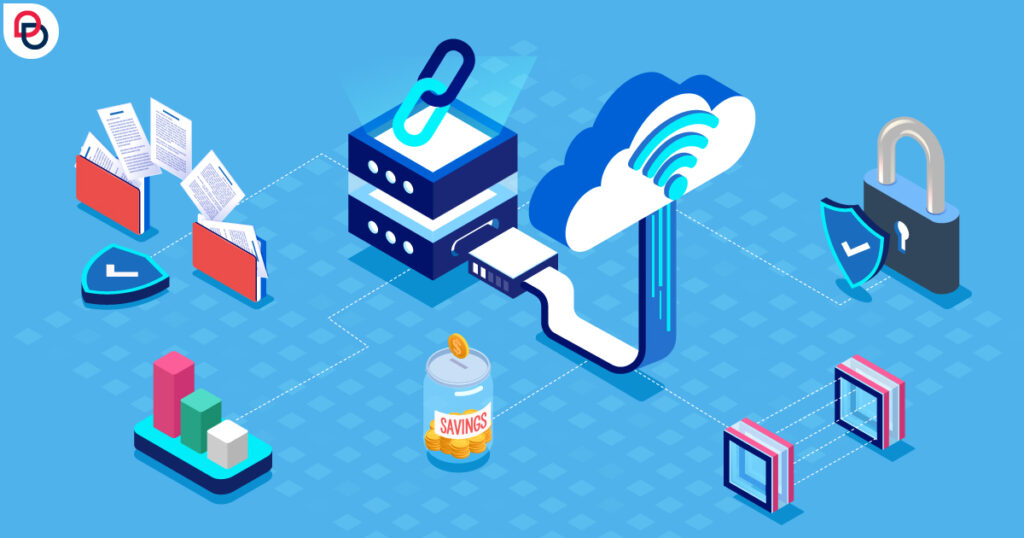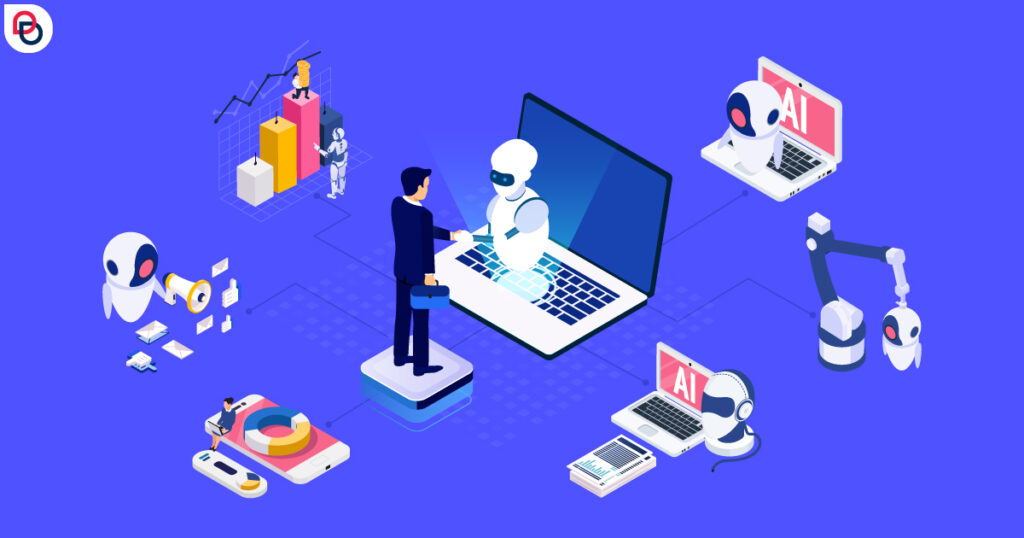11 App Development Trends Relevant in 2022 & Beyond

11 App Development Trends Relevant in 2022 & Beyond
The demand for mobile and web apps has significantly skyrocketed during the pandemic years. Even now, as businesses keep scrambling to digitize their core architecture to meet the changing needs of the markets and consumer behavior, app development is the investment that many are ready to make.
However, is investing in developing, launching, and marketing an app enough? What are the factors that influence app development? What elements should be present in an app to drive ROI? Well, it’s the latest technology trends and their projected impact in the future that must be taken into consideration when building an app. On that note, here are all the hot trends in app development that remain relevant in 2022 and beyond.
1) Web 3.0:
For one’s who are not quite familiar with the term, Web 3.0 is one of the most highly anticipated technological evolutions, that is all set to transform and revolutionize the very fabric of how businesses function today.
Web 3.0 is an equitable open network that allows people to engage and interact without having to worry about the breach of their data security and privacy. It combines the power of Big Data, Blockchain, and Artificial Intelligence.
It presents an improved version of the internet and advantages of autonomy. As per experts, Web 3.0 also counters spying and unethical censorship.
How does it impact businesses? Well, for starters, it can deploy more transparent and consumer-centric solutions. It guarantees accountability regarding how corporations collect and handle their data, something that’s quite lacking in the present-day internet and digital solutions.
How does it impact app development? Web 3.0 creates a semantic web ecosystem where data can be curated transparently. Accordingly, developers can craft the apps.
You can expect more intensive integrations of AI, ML, 3D graphics, and mixed reality, further influencing a ubiquitous experience for the user. Last but not the least, Web 3.0 is increasingly intelligent and independent, due to the semantic web, which significantly influences app development and functioning.
2) Internet of Things (IoT):
You can run, you can hide, but you can’t escape the internet. Yes indeed! The Internet has its hooks deep into our lives, with its influence in every facet of our living. These days we have found solace in the connectivity within all our devices; how one connects and coordinates with the other to make our life easier and comfier.
That’s the Internet of Things (IoT) for you and it’s what all developers should be aware of when building an app, keeping their target consumers in mind. In the consumer version, home appliances, computers, and other smart devices are interconnected, ensuring that it runs smoothly, without manual interference.
IoT system identifies the unique user enabling the person to send and receive commands across the internet, which enables the connected devices to function. As more smart devices and wearables get added to the IoT system, the demand for IoT-backed apps will only increase.
Read More:

Why ‘Internet of Things’ Is the Next Big Thing in the World of Business?
3) 5G:
2022 has been marked as the year of the rise of 5G. Although the technology has been around for a while now, it is projected to expand its reach in the current year. Market numbers project a notable increase in 5G connection globally in the next 3-4 years.
With the leading tech companies and gadget manufacturers making their latest products 5G-compatible, it is something to consider when building an app; will it be up to the 5G level? Well, it has to be if you want to beat the competition, as everyone else is keeping it in their notes to integrate the existing apps and new deployments with 5G technologies for:
- 100x faster performance compared to 4G.
- Higher resolution.
- Reduction in latency from 50 milliseconds to 1 millisecond.
- Better integration opportunities for AR and VR.
- Faster data transfer between devices.
- Quicker mobile payments and lots more.
To summarize, the adoption of 5G will make the apps faster, smoother, with enhanced efficacy. Now, who won’t want that for their app?!
4) Blockchain:
Even though it is still in its nascent stage of development and adoption, blockchain is that new-age technology that the world can’t get enough of. We have seen its successful use case in the form of crypto, but there is so much more that blockchain can do. So, in terms of app development what can blockchain do? Why do developers give importance to this should decentralized ledger technology? Your answer is in the word decentralized.
In terms of app building blockchain, helps in creating decentralized databases ensuring transparency in data collection and usage, not mention, upholding data privacy. Using blockchain one can develop more secured applications, and offer the same enhanced security to the user. Some notable examples have been set by Microsoft with the formation of their blockchain consortium Coco or Confidential Consortium framework. Other are smartphone manufacturers like HTC and Samsung, who are launching devices that have blockchain integrations in the form of crypto mobile wallets and DApps store, etc.
Read More:

5) Artificial Intelligence:
Artificial Intelligence has been the main area of focus for many app-building companies, with it becoming almost mainstream in that domain, especially with the popularity of chatbots and virtual assistants like Siri and Alexa. So, it is one of the most important trends to take note of in 2022 and beyond for mobile app developers and mobile app development companies.
User predictions and AI-based cameras are becoming more prominent these days. Google Maps’ use of AI for enhanced user experience is another marvel to notice, with features like a Live view of large indoor spaces through AR navigation and suggestions of less-carbon intensive routes via direction optimization.
Other AI-app development trends that will gain popularity are automated geolocation detection, predictive maintenance, algorithmic trading, image tagging, and recognition. Companies invested in gaming app building will have lots of areas to explore with AI integration.
Read More:

6) Machine Learning:
Machine Learning, although related to AI has its very own separate domain to explore. This year projects significant growth in the global Machine Learning industry, which makes it a notable addition to our list of app development trends. ML can work wonders by providing real-time data and analytics in app development projects. It is especially useful in the development of MVPs or Minimum Viable Product, where you can get real-time and make changes in the app development accordingly.
Speaking of ML in app development, one has to name Apple, which has set the benchmark in using the technology to create amazing immersive experiences. ML APIs make it easier to create and add new features. So, it’s worth taking a closer look at the potential and efficacy of Machine Learning so that you can use the same in your app development cycle.
7) Metaverse:
Metaverse might be the new kid on the block with its very recent launch but it has already taken the world by storm, all set to change the face of app development and business marketing. The Metaverse is all about creating immersive virtual experiences, through the mish-mash of the physical and virtual world. It allows people to interact with each other virtually through avatars.
It takes mixed reality to the next level, creating a virtual space for conducting meetings and parties, attending concerts, and getting educated. The spaces feel real and offer real-life experiences. How do you access Metaverse? You can do that through VR headsets. Now, the disruption of Metaverse into the app development space creates a plethora of opportunities for the development of virtual meeting apps, gaming apps, educational apps, dating apps, and event apps. Something to consider when ideating and building your next project! Best to leave some room open for introducing Metaverse features, to stay ahead in the game.
8) Mixed Reality:
Mixed reality is where the barriers of the physical and the virtual blur enable people to have real-life experiences in the virtual world. An amalgamation of AR and VR, mixed reality has found multiple uses cases amid the pandemic months, especially with retail businesses, which started selling their products by allowing buyers to try them online.
Real estate companies created mixed reality spaces so that potential clients could take a tour of the property in the comforts of their homes. The industry that has been most influenced by this technology is gaming. And now with the emergence of the Metaverse, you simply cannot rule out mixed reality from your app development plans.
9) Multiplatform Development:
There is nothing new to say about multiplatform app development or cross-platform apps. It’s perfect for companies who want to build and develop apps cost-effectively. Cross-platform App development allows the developer to write a single code that works across platforms. As the demand for apps increases across industries and more people pool in investments, enterprises will need cost-effective measures to mitigate that requirement. Some tools that can help app developers in delivering cross-platform apps are:
- React Native
- Xamarin
- Flutter
- Ionic
- Appcelerator
- Cordova
Cross-platform app development reduces the cycle of development and ensures easier maintenance, not to mention more futuristic and progressive apps that work seamlessly across multiple platforms.
10) Chatbots:
We all know about chatbots, the virtual version of traditional customer support that is always ready to answer all your queries when visiting a website. Data shows that including chatbots can boost customer engagement unlike any other.
Read More:

Other than answering consumer queries, chatbots can be used to automate lead generation, collect and collate consumer data, gather insight from the feedback, and lots more. Plus with chatbots, the app remains live 24×7 to interact and engage with the target audience. If you are still not including chatbots in your app development, maybe in your next project you should see that scope.
11) Databases:
Choosing the right database is more of a necessity rather than an app development trend that you should know about in 2022. Incorporating a robust database not only ensures better storage and security of the data used in building the application. Some of the top databases to use in 2022 are:
- MySQL
- Redis
- MongoDB
- PostgreSQL
- Couchbase
Wrapping Up!
Well, that’s all for this post on the top app development trends of 2022 and beyond. Hope you find it insightful and implement it in the projects you develop this year and moving forward. Remember that technology is always evolving and so should your approach to building an application. That’s the only way to stay ahead in the game.




















